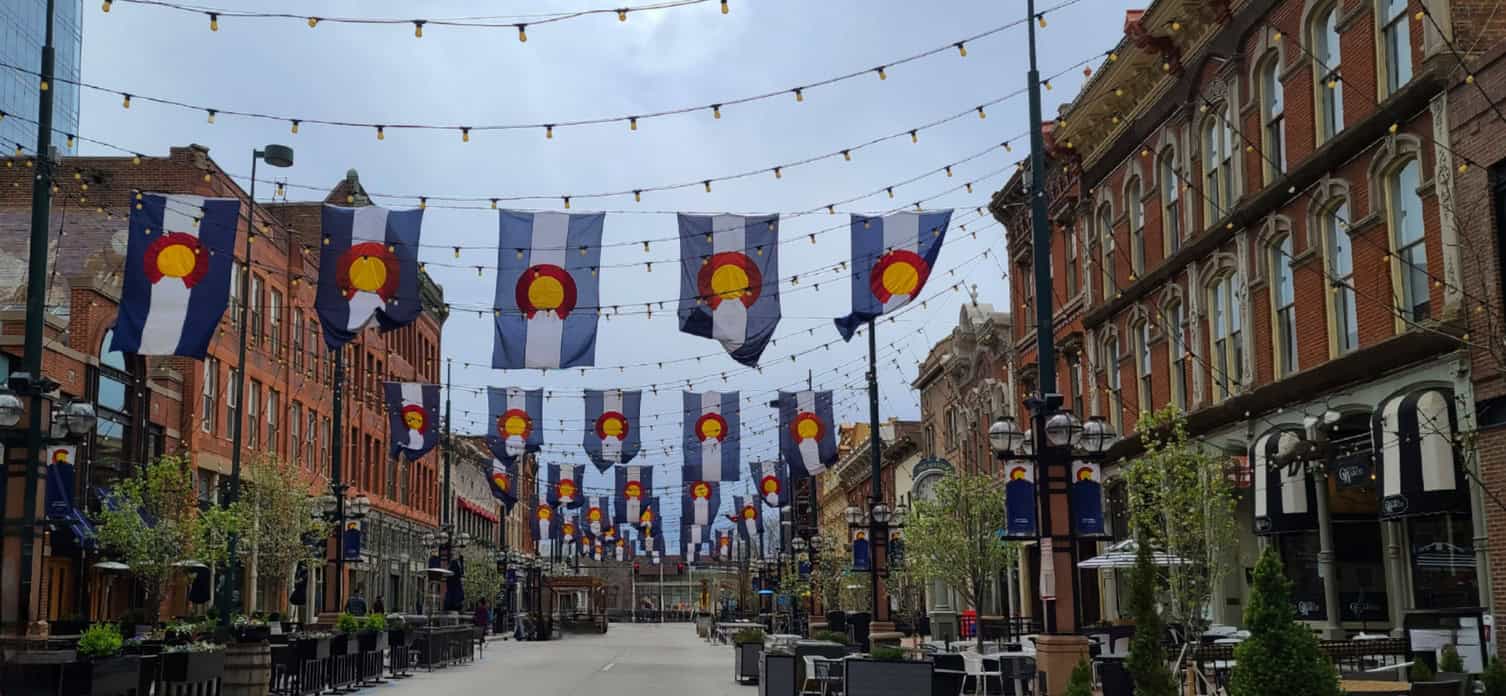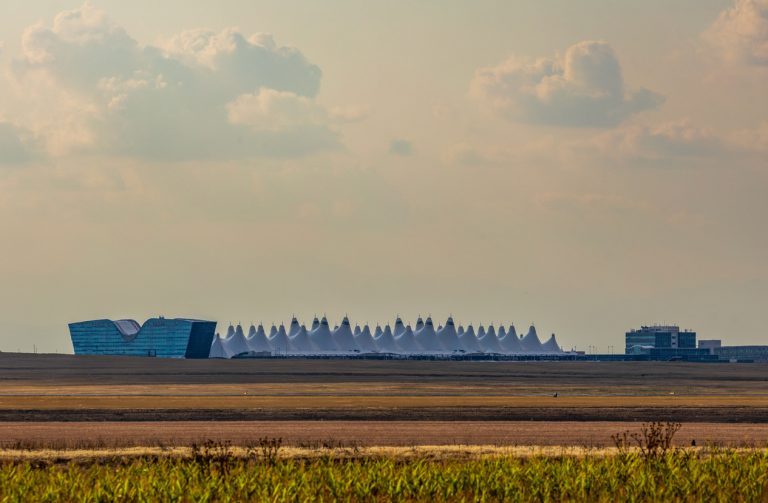Where to Stay in Denver: A Complete Neighborhood Guide
Choosing where to stay in Denver can make or break your Mile High City experience. After years of exploring Denver’s diverse neighborhoods and helping countless travelers find their perfect base, I’ve learned that the “best” area depends entirely on what you want from your visit.
Denver isn’t just downtown and the airport—this sprawling city offers distinct neighborhoods, each with its own personality, advantages, and trade-offs. Whether you’re here for business meetings in the Tech Center, want to dive into the craft beer scene in LoDo, or need luxury shopping access in Cherry Creek, your neighborhood choice shapes everything from your daily commute to your dining options.
This guide breaks down Denver’s top lodging areas by what matters most: why you’d choose each location, what you’ll gain, what you’ll sacrifice, and who each neighborhood serves best. I’ll give you the honest rundown so you can make the choice that fits your travel style and priorities.
Downtown Denver
Downtown Denver is really two distinct experiences, and understanding the difference can save you from booking in the wrong spot for your needs.
LoDo (Lower Downtown)
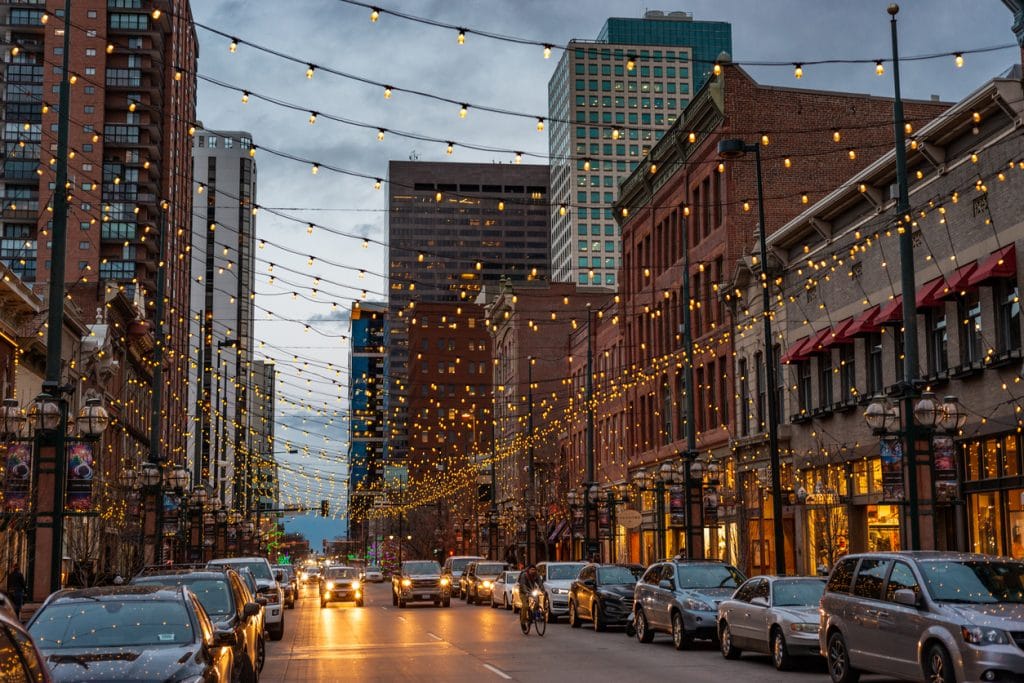
LoDo represents Denver’s entertainment heart—a historic warehouse district that’s been transformed into the city’s premier nightlife and sports destination. This is where you’ll find Coors Field, the Colorado Rockies’ home stadium, and the incredible advantage of being within walking distance of all major Denver sports venues, including Ball Arena (home to the Nuggets and Avalanche) and Empower Field at Mile High (Broncos stadium). Add in the highest concentration of breweries, rooftop bars, and late-night dining in the city, and you have Denver’s ultimate sports and entertainment hub.
The cobblestone streets and converted warehouse buildings give LoDo serious character that you won’t find elsewhere in Denver, highlighted by the stunning Union Station—a beautifully restored 1914 transportation hub that now houses upscale dining, shopping, and The Crawford Hotel. The historic architecture mixed with modern restaurants creates an atmosphere that feels authentically Denver.
LoDo is also incredibly convenient for travelers flying into Denver Airport, as the A-Line train delivers you directly to Union Station in the heart of the neighborhood. This makes LoDo one of the most accessible downtown areas for airport travelers who want to dive straight into Denver’s culture without dealing with traffic or expensive rideshares.
See related: How to Take the Denver Airport Train to Downtown Denver.
Perfect for: Sports fans, nightlife enthusiasts, first-time Denver visitors who want to experience the city’s famous craft beer culture, travelers who prioritize walkability and character over quiet, airport travelers who want immediate access to Denver’s culture.
The reality: Weekend nights get loud, especially during baseball season and when big concerts are happening. Hotel rates spike during events, and finding parking can be frustrating and expensive. If you’re a light sleeper or prefer quiet evenings, LoDo’s energy might feel overwhelming.
The trade-offs: You’re paying premium prices for the location and atmosphere, but you’re getting authentic Denver culture and convenience. Late-night dining options abound, but expect crowds and noise to match.
Click here to search for LoDo hotels.
CBD (Central Business District)
Denver’s Central Business District centers around the financial core and convention center—this is business Denver at its most professional. The area serves 16th Street (formerly known as “16th Street Mall”), major office buildings, and the Colorado Convention Center, creating a different energy than LoDo’s entertainment focus.
Ideal for: Business travelers, convention attendees, travelers who want downtown access with less chaos, those who prefer the energy of a business district over a party district.
The CBD offers excellent access to Denver’s light rail system via Union Station, making it easy to reach other neighborhoods or even Boulder. You’re walking distance to the Denver Performing Arts Complex and major business venues, with more professional dining options than tourist-focused spots.
Considerations: The area quiets down significantly after business hours and on weekends, which some love and others find too sterile. While you’re still downtown, you’re not in the thick of Denver’s famous nightlife scene. Parking can be expensive, though many hotels offer valet options.
The balance: You get downtown convenience with a more professional atmosphere, but you’ll miss some of the character and energy that makes Denver special. Restaurant options tend toward business lunch spots rather than the creative dining scene found elsewhere.
River North Art District (RiNo)
RiNo sits just north of downtown Denver and has transformed from an industrial area into the city’s creative epicenter. This neighborhood pulses with street art, craft breweries, artist studios, and some of Denver’s most innovative restaurants, making it a favorite among younger travelers and creative types.
Perfect for: Art enthusiasts, craft beer lovers, travelers seeking Denver’s creative scene, those who want a hipper alternative to traditional downtown, visitors interested in street art and galleries.
The neighborhood showcases Denver’s artistic soul through massive murals, gallery walks, and creative spaces that you won’t find in the more polished downtown core. RiNo’s brewery scene rivals LoDo’s but with a more local, less touristy feel. The area also offers excellent access to downtown via short rideshare trips or bike rides.
The creative trade-off: You’re in a rapidly gentrifying area that maintains its gritty artistic edge, but accommodation options are more limited than downtown proper. The neighborhood can feel rougher around the edges, especially at night, and some blocks are still transitioning from industrial to residential use.
The appeal: RiNo gives you authentic Denver creativity and culture at potentially lower costs than downtown hotels, but you’ll need to be comfortable in an evolving neighborhood that’s still finding its identity.
Click here to search for all Downtown Denver hotels. You will be able to filter to your preferred area.
Cherry Creek
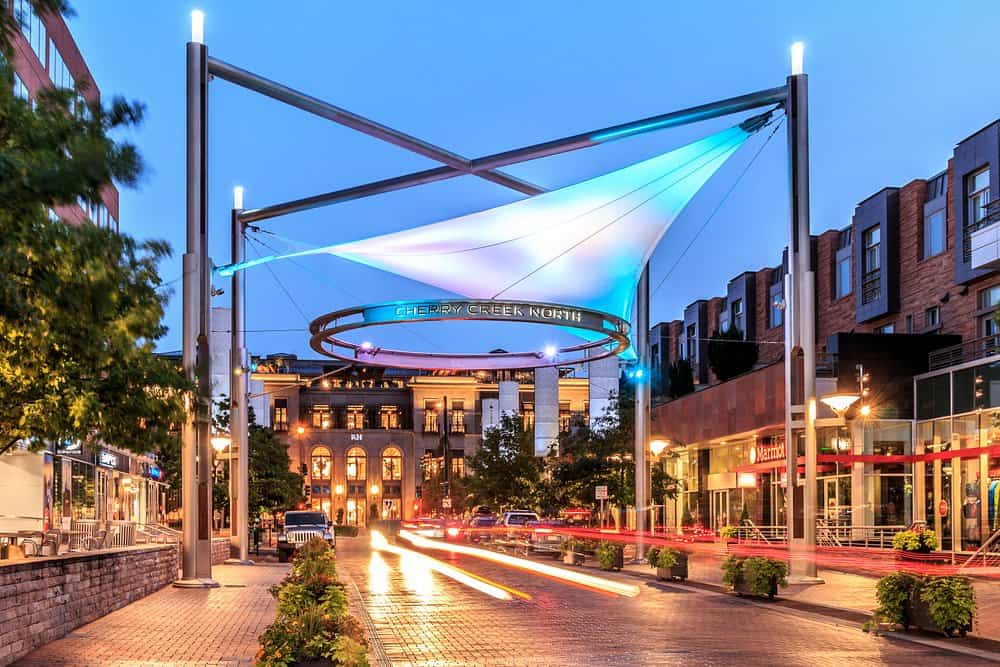
Cherry Creek positions itself as Denver’s upscale answer to Beverly Hills—and the price tags to match. This neighborhood centers around the Cherry Creek Shopping Center and is home to high-end boutiques, art galleries, and some of Denver’s most expensive real estate.
Best suited for: Luxury travelers, serious shoppers, art enthusiasts, travelers who prioritize safety and refined amenities, those attending events at the Denver Art Museum or other cultural venues.
Cherry Creek offers a level of sophistication and safety that’s hard to match elsewhere in Denver. The shopping is legitimately world-class, with everything from Neiman Marcus to unique local boutiques. Fine dining restaurants here focus on quality over quantity, and the tree-lined streets feel more residential and peaceful than downtown’s urban energy.
You’re close to the Denver Art Museum and other cultural attractions, and the neighborhood has a European feel that some travelers prefer over Denver’s more rugged mountain town vibe. Hotels here typically offer higher-end amenities and service levels.
The reality: Everything costs more in Cherry Creek—from hotel rates to restaurant bills to parking fees. You’re also somewhat isolated from Denver’s famous craft beer scene and more casual dining spots that define much of the city’s character. Public transportation access is limited compared to downtown, so you’ll likely need rideshare or a car to explore other neighborhoods.
Premium positioning: You’re paying for refinement, safety, and luxury amenities, but you might miss Denver’s more authentic, laid-back culture. If you’re looking for the “real Denver” experience of breweries and casual mountain town vibes, Cherry Creek feels more like any upscale shopping district than uniquely Denver.
Click here to search for Cherry Creek hotels.
Neighborhoods Close to Downtown
These areas offer easier access to downtown attractions while providing their own distinct character and often better value than staying in the downtown core.
Highlands
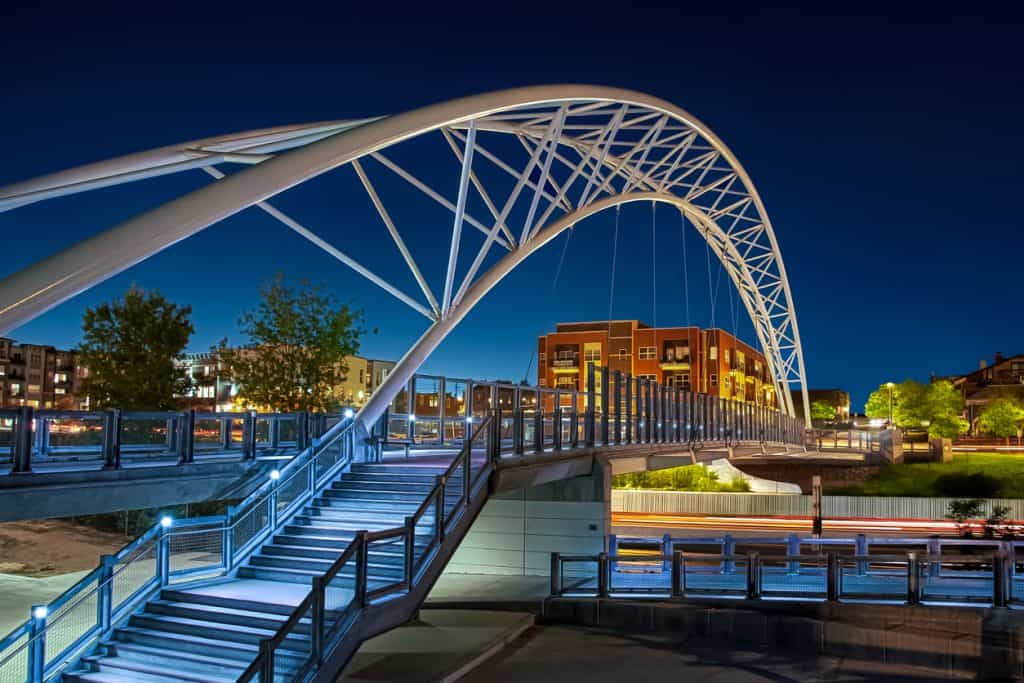
The Highlands (including LoHi – Lower Highlands) neighborhood sits just northwest of downtown across the South Platte River and has evolved into one of Denver’s trendiest areas. Highland Square and the surrounding streets offer a perfect blend of local character and downtown accessibility.
Best suited for: Travelers wanting local flavor without downtown prices, those who enjoy walkable neighborhoods with character, visitors seeking authentic Denver dining and nightlife, people who want quiet evenings but easy downtown access.
The Highlands provides a more residential feel while maintaining excellent restaurant and bar options that locals actually frequent. You’re close enough to downtown for easy rideshare or bike access, but far enough away to escape the tourist crowds and noise. The neighborhood offers better parking options and often lower hotel rates than downtown proper.
The accessibility balance: You get authentic Denver neighborhood life at lower costs, but you’ll need transportation to reach major downtown attractions and sports venues. The area is quieter in the evenings, which some love but others might find too sleepy.
Berkeley/Tennyson
Berkeley, centered around the Tennyson Street corridor, represents Denver’s emerging foodie and artistic scene in a more affordable, residential setting. This area attracts locals with its independent restaurants, unique shops, and community feel.
Great for: Food enthusiasts, travelers on moderate budgets, those wanting to experience where locals actually live and eat, visitors who prefer neighborhood charm over downtown energy.
Tennyson Street has become a destination for Denver’s best independent restaurants and unique shopping, giving you access to the city’s evolving culinary scene without tourist markup. The residential setting provides a genuine sense of Denver neighborhood life.
The trade-off reality: You’re further from major attractions and definitely need transportation to reach downtown venues or sports events. Accommodation options are more limited, typically consisting of boutique properties or vacation rentals rather than major hotel chains.
Suburban Neighborhoods
These areas shine when downtown hotels are sold out or rates spike during major events, conventions, or peak seasons. They also work well for business travelers to certain areas, families or extended stays where space and amenities matter more than location.
Denver Tech Center (DTC)
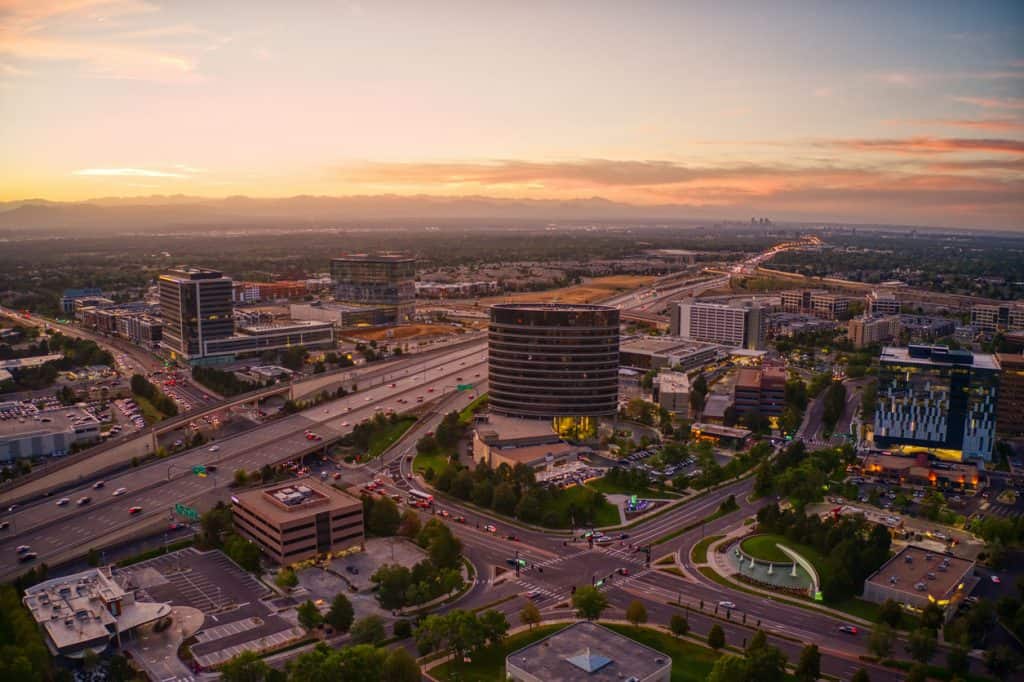
The Denver Tech Center occupies the southeast metro area and serves as Denver’s primary suburban business hub. Think office parks, corporate headquarters, and modern hotels designed around business traveler needs rather than tourist attractions.
Target audience: Corporate travelers, extended-stay business visitors, conference attendees, travelers who prioritize modern amenities and parking convenience over local character.
DTC hotels typically offer larger rooms, reliable high-speed internet, business centers, and ample parking—all standard amenities that can be hit-or-miss in downtown properties. Many properties cater specifically to extended stays with kitchenettes and workspace areas. Chain restaurants and familiar dining options dominate, which some business travelers prefer for consistency.
The convenience factor: Everything operates on suburban schedules with reliable parking and easy highway access. If your business is in the Tech Center, staying here eliminates commute stress and downtown parking costs.
What you’re giving up: The DTC lacks any real local character or authentic Denver experience. You’re essentially staying in a business park environment where everything closes early and nightlife is non-existent. Getting to downtown Denver or other interesting neighborhoods requires driving or lengthy public transit rides.
The suburban reality: You get efficiency and predictability at the cost of Denver’s personality. While hotels here often offer good value and modern amenities, you’ll miss the craft beer scene, cultural attractions, and mountain town atmosphere that bring most people to Denver in the first place.
Lakewood
Lakewood represents Denver’s western suburbs and offers a different value proposition—more space, lower prices, and easier access to the mountains, but at the cost of distance from downtown attractions.
Great for: Budget-conscious travelers, families needing space and amenities, outdoor enthusiasts who want mountain access, travelers with rental cars who don’t mind driving to attractions, those visiting during high-demand periods when downtown options are expensive or sold out.
Hotels in Lakewood typically offer significantly better value than downtown options, with larger rooms, pools, and family-friendly amenities standard rather than premium add-ons. You’re also positioned well for day trips to Red Rocks Amphitheatre, mountain hiking, or other outdoor activities that bring many visitors to Colorado.
The suburban environment means ample parking, chain restaurants that kids recognize, and a more relaxed pace that some families prefer over urban intensity.
Transportation reality: You’ll need a car or be prepared for lengthy public transit rides to reach downtown Denver attractions. What you save on hotel rates, you might spend on parking and transportation costs. Evening entertainment options are limited to chain restaurants and suburban shopping centers.
The family equation: If you’re traveling with kids, the space, pools, and family amenities might outweigh the inconvenience of distance. However, if experiencing Denver’s famous culture and dining scene is important, the daily commute gets old quickly.
Value with trade-offs: You’re getting more space and amenities for your money, but you’re also somewhat isolated from what makes Denver special. This works well for families or budget travelers who plan to spend most of their time at specific suburban attractions or outdoor activities.
Littleton
Littleton sits southwest of Denver and offers similar suburban advantages to Lakewood with the added benefit of being closer to some of Colorado’s outdoor attractions and the Light Rail system.
Perfect for: Families seeking suburban comfort, travelers planning outdoor adventures, those wanting value during peak downtown pricing, visitors to specific south metro attractions or businesses.
Littleton provides family-friendly hotel amenities and chain restaurant options while offering better access to hiking areas and outdoor recreation than some other suburban options. The presence of Light Rail connections can make downtown access more feasible than other suburban areas.
The strategic advantage: During major Denver events like conventions, sports playoffs, or peak summer tourist season, suburban areas like Littleton and Lakewood often maintain reasonable rates while downtown properties price out most travelers.
Other Suburban Options
Areas like Westminster, Thornton, and Englewood offer similar suburban hotel advantages and can be lifesavers when central Denver accommodations are sold out or prohibitively expensive. These areas work best for travelers with cars who prioritize space, amenities, and value over location and local character.
Denver Airport Hotels
Airport hotel areas serve specific travel scenarios rather than offering a “Denver experience.” Understanding when staying near DEN makes sense versus when it’s worth the trip into the city can save you both money and frustration.
Smart choice for: Early morning flights (before 7 AM), late-night arrivals, rental car pickup travelers, those with tight connections, business travelers focused on specific airport-area companies.
Airport area hotels excel at solving logistics problems—free shuttles, reliable transportation timing, 24/7 services, and park-and-fly packages that can save money for longer trips. If your primary goal is getting to your flight efficiently, these properties deliver exactly what you need.
What you’re getting: Consistent chain hotel amenities, predictable service levels, shuttle reliability, and proximity to car rental facilities. Many properties offer business centers and meeting spaces designed for corporate travelers.
The limitation reality: You’re essentially staying in an airport corridor with chain restaurants as your only dining options. There’s no local character, cultural attractions, or authentic Denver experience available. Entertainment options consist of hotel bars and maybe a nearby chain restaurant.
When it makes sense: If you’re arriving late and departing early, staying near the airport eliminates transportation stress and saves time. For longer stays where you plan to explore Denver, the daily commute to downtown gets expensive and time-consuming quickly.
The convenience calculation: You’re paying for logistics convenience rather than experience. This works perfectly for specific travel scenarios but leaves you missing Denver’s character entirely if you stay multiple nights without venturing into the city.
Making Your Denver Choice
Your ideal Denver neighborhood depends on balancing three main factors: what you want to experience, how much you want to spend, and how much convenience matters versus authentic local culture.
For the full Denver experience: Choose downtown Denver, specifically LoDo if you want nightlife and sports access, or the CBD if you prefer a more professional atmosphere. You’ll pay more but get the authentic Denver culture.
For luxury and sophistication: Cherry Creek delivers upscale amenities and shopping but at premium prices and with limited access to Denver’s more casual, authentic culture.
For business efficiency: DTC works well for corporate travelers but offers little local character. Airport hotels serve specific logistical needs but aren’t suitable for experiencing Denver.
For value and space: Lakewood provides better hotel amenities for the money but requires transportation planning to reach Denver’s main attractions.
Remember that Denver’s size and traffic patterns mean your neighborhood choice affects more than just your hotel experience—it shapes your entire visit. Choose based on what matters most for your specific trip, and don’t be afraid to prioritize convenience over savings if it means a better overall experience.
The key is matching your lodging choice to your travel priorities rather than just picking the cheapest option or the most central location. Denver’s diverse neighborhoods each serve different travel styles well—the trick is knowing which one fits yours.

